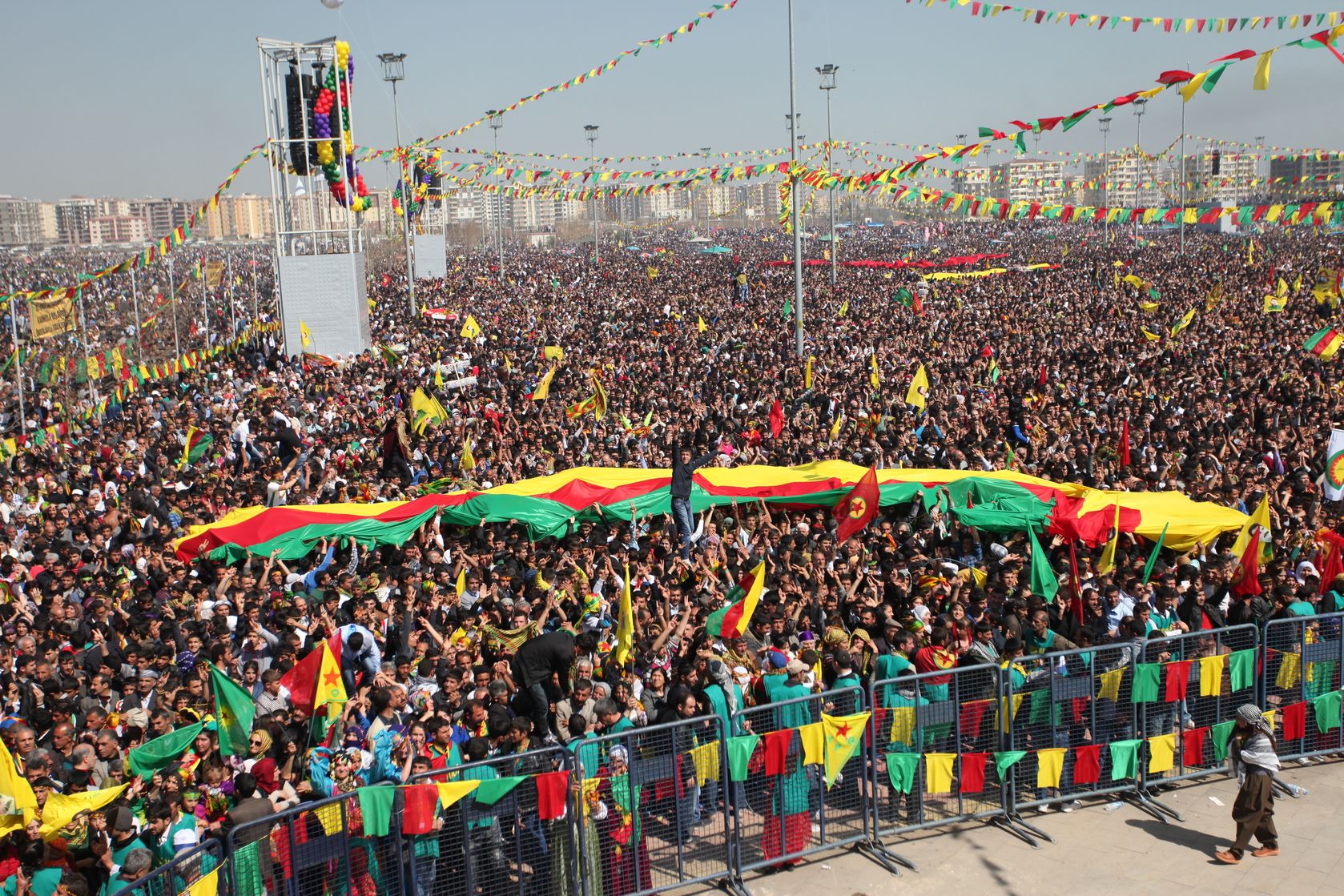News source: http://www.huffingtonpost.com/entry/turkey-pkk-iraq_55b8aa32e4b0a13f9d1ace1e
In the 19th
century, the tensions in Europe had been culminating as the fear of German
expansionism threatened the balance of power in Europe. In the summer of 1914,
war finally broke out. The continent was then divided into two armed camps. The
Triple Entente was made up of France, Russia and Great Britain; in opposition
to the Entente powers was the alliance of Central Powers: Austria-Hungary,
Germany and Italy. After Russia declared war on Ottoman Empire, it entered the
war in October 1914 as one of the Central Powers after three months of
remaining neutral. World War I ended with the victory of the Entente and the
dissolution of Ottoman Empire.
The formulation
of a postwar division of the Ottoman Empire was discussed between the victors.
At that time, Britain already had control of India since 1857 and Egypt since
1888. Middle East lay right in the middle of these two important colonies, and
London was ready to claim its spoils of war. Initially, the British government
made an agreement with Shalif Hussein bin Ali to revolt against the Ottomans.
As an exchange, Britain promised to support his plan of creating an Arab
Kingdom in the Middle East. At the same time, Arthur Balfour, the Foreign
Secretary of Britain, sent a letter to Rothschild, the leader of the Zionist
movement, expressing British’s favour of “the establishment in Palestine of a
national home for the Jewish people.” However, behind the scenes, the great
powers had a different plan. What came to be known today as the Sykes-Picot
Agreement was a secret deal between two diplomats – Sykes of Britain and Picot
of France about the future fate of the Arab World.
Source : Sykes-Picot Agreement
The Middle
East’s future was then in dispute. The borders of the conquered Ottoman lands
were redrawn without the regard for indigenous wishes. The League of Nations
managed to create a system of new state entities, whose borders are basically
unchanged from their post-World War I creation.
Source : Map of the Middle East today
The boundaries
of the Arab World that the great powers divided among themselves left the
issues of identities, religions and sects unresolved. When the Allied Powers
carved up the Middle East, Kurdistan was erased from the world map. The Kurds,
who now live in parts of Iran, Iraq, Turkey and Syria, were denied a
nation-state.
Source: Kurdistan
The Kurdish
Question has been the protracted problem of Turkish politics. Even though the
Kurds span across three other countries (Iran, Syria and Iraq), the majority of
Kurdish people live in Turkey (Source),
which gives Turkey a unique position when addressing the Kurdish conundrum. There has always been a deep-seated hostility between Turkish and Kurds. “Non-Turks” were
perceived as a threat to a united Turkish republic, and in an attempt to deny
Kurdish ethnic identity, Turkish government designated them as “Mountain Kurds”
and banned Kurdish names, customs and language.
Originated
in the early 1970s, the Kurdistan Workers’ Party (PKK) initially aimed for a
fully independent Kurdistan and has always been a thorn in Turkey’s side. Its first full-scale insurgency
began in August 1984 and ended in 1999. The armed conflict was ignited again in
2004, and in the same year, the organization is designated as a terrorist group
by US and NATO. At the end of December 2012, Turkish Prime Minister Recep
Tayyip Erdogan agreed to start a peace process with the imprisoned PKK’s leader
Ocanan. However, the cease-fire appeared to end in July 2015 when Turkey
launched air strikes against PKK’s northern Iraqi camps after an IS’ bombing
killed Kurdish inside Turkey’s border (Source). Turkey’s air strikes have scuttled peace talks between Ankara and PKK, and in
a statement Erdogan told the reporters: “It is not possible for us to continue
the peace process with those who threaten our national unity and brotherhood.”
(Source)
Source: Kurds in Turkey celebrate their holiday of Newroz
Even though the
Kurds is the fourth largest group in the Middle East (Source),
they do not have a self-ruled region for themselves. Ongoing conflicts between
Turkey and PKK can be traced back to the Treaty of Lausanne after World War I which settled the borders of Middle Eastern countries.
Although the European countries should not be blamed entirely for the tensions
that have been flaring between the Turkish and Kurds today, they are still held
responsible for drawing the imperial borders without considering carefully the
ethnic diversity of the region. The Kurdish-inhabited
regions were incorporated into Turkey, and the bitterness between these two
ethnic groups has been nourished ever since.


.jpg)


No comments:
Post a Comment